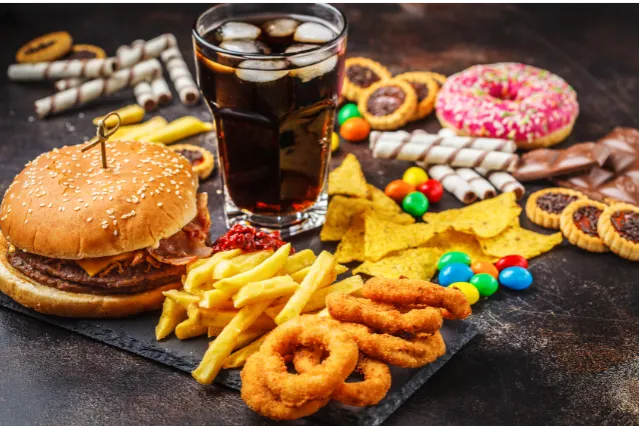What makes a food healthy? Many well-intentioned (but not always well-informed, and often lazy) consumers think that simply restricting their shopping to the organic food sections of the supermarket guarantees their purchases will be healthy. Not true. "Organic" says nothing about nutrient content or ingredient quality. Are "organic" corn chips healthy? Not when they're cooked in canola oil, coated with stabilizers and preservatives, and doused with refined sugar. Far from promising heath, the only guarantee organic food brings is a higher price.
The real key to a healthy diet is avoiding processed food. A recent study in the British Medical Journal found that that people who eat ultra-processed food die at a higher rate, specifically from cancer, cardiovascular disease, respiratory disease, and neurodegenerative disease. This is likely due to a combination of factors, including a poor nutritional profile, added sugar, saturated fat, texturizers, food coloring, flavoring formulas, refined carbohydrates, and the absence of fiber. These common qualities of ultra-processed foods make them "ready-to-eat," but they also appear to be killing people.
The study categorized the foods investigated using the Brazilian Nova classification system. Ultra-processed foods are made using "physical, biological, and chemical processes that occur after foods are separated from nature" and contain substances that are either "extracted from foods (oils, fats, sugar, starch, and proteins), derived from food constituents (hydrogenated fats and modified starch), or synthesized in laboratories from food substrates or other organic sources (flavor enhancers, colors, and several food additives used to make the product hyper-palatable)." In other words, ultra-processed foods are fake foods made to taste good.
Ultra-Processed Foods
Cookies
Sports drinks
Canned foods
Fruit yogurt
Frozen pizza
Chicken nuggets
Packaged bread, hamburger and hot dog buns
Cereal
By contrast, unprocessed, minimally-processed, or natural foods "are obtained directly from plants or animals and do not undergo any alteration following their removal from nature." They do not contain added oils, fats, or sugar.
Unprocessed or Minimally Processed Foods
Frozen vegetables, fruits, potatoes
Bulk brown rice
Fruit juice with no added sugar
Eggs
Coffee and tea
Fresh or frozen whole, steak, or filet meat / poultry / fish
If you visit your local grocery store (including Trader Joe's) and read the ingredient list of any packaged food, whether in bags, boxes, or bottles, whether on the shelves, in the refrigerators, or in the frozen section, you'll find that very few items fall into the unprocessed or minimally-processed category. It can be quite difficult to find any food outside the perimeter of the store (deli, dairy, meat, produce sections) that is truly healthy. There is plenty of "organic" food in the center of the store, but most of it is junk, too.
A simple, straightforward, and reliable method of choosing unprocessed or minimally-processed food when shopping is to count the number of ingredients on the label: the fewer ingredients the better (preferably three or less). Any food with only one ingredient is very likely natural and unprocessed. Of course, refined sugar contains only one ingredient, yet it qualifies as processed. And yes, "organic sugar" is pure junk.
So shop the perimeter of the store, and, if you venture into the interior, only buy foods with three or fewer ingredients (organic or not), and you stand an excellent chance of avoiding ultra-processed foods. They're death traps. In fact, simply eating natural or minimally-processed foods may be the most effective dietary change you can make to improve your health and reduce your risk of dying early.
Although supplements cannot negate the known health risks of eating ultra-processed foods, they can supply missing nutrients. Obtaining nutrients from natural food is ideal, but nutrient-rich supplements are an excellent second option, especially when those supplements are made from all-natural, unprocessed ingredients, with minimal to no additives. Smidge is a supplement company that follows this all-natural supplement method. Below is a link to my nutrient-deficient supplement plan (that contains a Smidge product) I provide my patients. I am now sharing it with my Dissident MD subscribers. To access the plan, you must first create a free patient account at Fullscript by entering your name and email address: Dr. Mark McDonald’s Fullscript dispensary.Watch a one-minute video on how to create an account below.









Member discussion